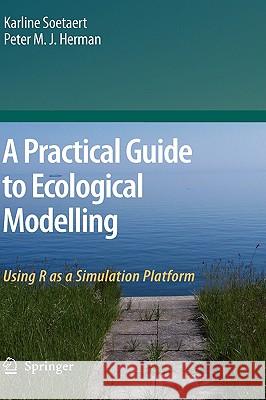A Practical Guide to Ecological Modelling: Using R as a Simulation Platform » książka
A Practical Guide to Ecological Modelling: Using R as a Simulation Platform
ISBN-13: 9781402086236 / Angielski / Twarda / 2008 / 392 str.
Mathematical modelling is an essential tool in present-day ecological research. Yet for many ecologists it is still problematic to apply modelling in their research. In our experience, the major problem is at the conceptual level: proper understanding of what a model is, how ecological relations can be translated consistently into mathematical equations, how models are solved, steady states calculated and interpreted. Many textbooks jump over these conceptual hurdles to dive into detailed formulations or the mathematics of solution. This book attempts to fill that gap. It introduces essential concepts for mathematical modelling, explains the mathematics behind the methods, and helps readers to implement models and obtain hands-on experience. Throughout the book, emphasis is laid on how to translate ecological questions into interpretable models in a practical way.
The book aims to be an introductory textbook at the undergraduate-graduate level, but will also be useful to seduce experienced ecologists into the world of modelling. The range of ecological models treated is wide, from Lotka-Volterra type of principle-seeking models to environmental or ecosystem models, and including matrix models, lattice models and sequential decision models. All chapters contain a concise introduction into the theory, worked-out examples and exercises. All examples are implemented in the open-source package R, thus taking away problems of software availability for use of the book. All code used in the book is available on a dedicated website.











